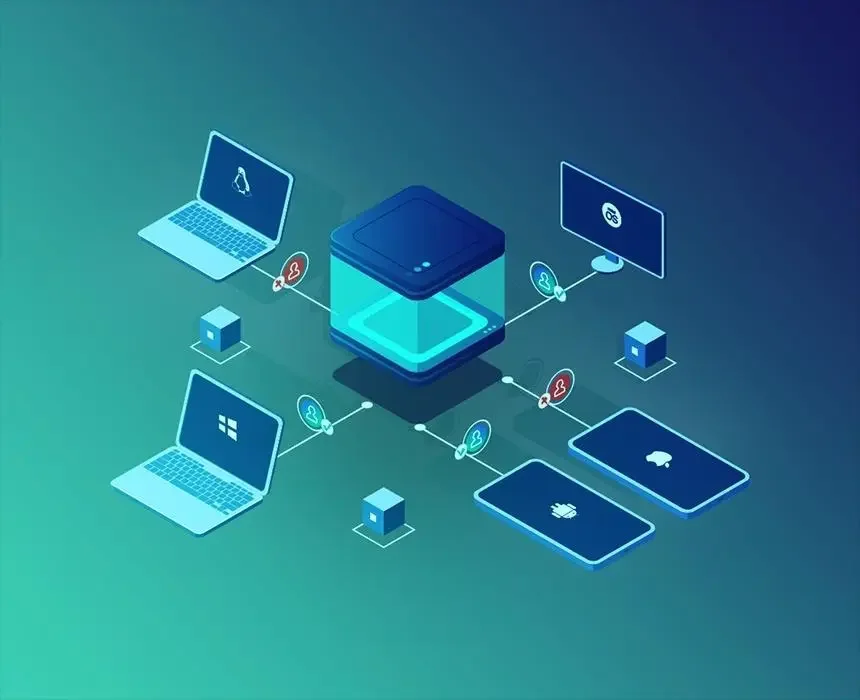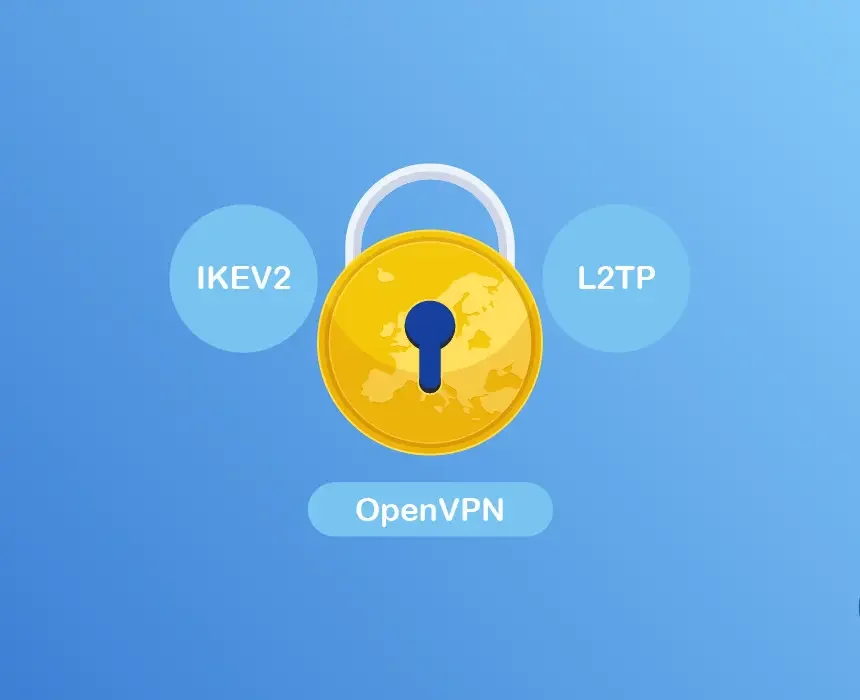
In today's interconnected digital landscape, where businesses increasingly rely on cloud infrastructures to store their network resources and applications, ensuring data security has become paramount. While organizations employ various cybersecurity measures, the Virtual Private Network (VPN) remains a fundamental tool for safeguarding data integrity and compliance.
A VPN solution is specifically designed to protect sensitive data by establishing a secure and encrypted tunnel between servers and accessing devices. By routing data traffic through this secure tunnel, a VPN effectively shields it from risks associated with data breaches, eavesdropping, and other security vulnerabilities. VPN solutions are widely embraced by organizations as a cybersecurity tool, enabling secure remote access to resources for employees. Apart from remote access, site-to-site VPN solutions facilitate seamless connectivity with remote/branch office networks, Virtual Private Clouds (VPCs), and applications, allowing for resource sharing as if they were all part of a single network.
In this blog post, we will delve into the details and explore the key differences between VPN as a Service (VPNaaS) and Traditional VPNs, highlighting their deployment, management, flexibility, performance, and other major aspects.
Traditional VPNs have been widely used for establishing secure connections between remote users and private networks. They rely on dedicated hardware and software installed on the user's devices and require a manual configuration process. Traditional VPNs establish a secure tunnel for data transmission, typically using encryption protocols like IPsec (Internet Protocol Security) or SSL (Secure Sockets Layer). While Traditional VPNs provide a high level of security and control, they demand significant infrastructure investment, skilled IT personnel, and ongoing maintenance.
VPN as a Service (VPNaaS) is a relatively newer approach that offers a more streamlined and scalable solution for businesses. In VPNaaS, the VPN infrastructure is hosted and managed by a third-party service provider. It eliminates the need for organizations to invest in dedicated hardware, software, and maintenance efforts. VPNaaS operates on a subscription-based model, allowing businesses to access VPN services on-demand, paying only for what they use. This approach offers greater flexibility and scalability, making it easier to adapt to changing business needs.
Traditional VPNs require a significant upfront investment in hardware, software, and skilled IT personnel to set up and maintain the infrastructure. VPNaaS eliminates this burden by providing a ready-to-use solution managed by the VPN service provider. VPNaaS solutions provide a user-friendly interface, making it easy to set up and use, even for individuals with limited technical expertise.
Traditional VPNs involve capital expenses for purchasing and maintaining infrastructure components. VPNaaS operates on a subscription-based pricing model, eliminating the upfront costs associated with purchasing and maintaining dedicated VPN hardware and software. Organizations need to pay only for the VPN services they use, making it a cost-effective option, especially for small to medium-sized businesses with limited IT budgets.
VPNaaS offers greater flexibility and scalability, as businesses can easily scale their VPN resources up or down based on demand. VPNaaS solutions can seamlessly integrate with other cloud services, such as cloud-based applications or infrastructure providers. This allows organizations to establish secure connections between their on-premises network and cloud resources, enabling a hybrid or multi-cloud environment. Traditional VPNs require manual adjustments and infrastructure changes, often a full-scale hardware upgradation to accommodate scalability requirements.
Traditional VPNs offer optimal performance when all business resources are located on-premise. However, as more businesses transition to the cloud, VPN as a Service (VPNaaS) emerges as the superior choice. VPNaaS allows for seamless deployment of VPN servers on cloud infrastructure, effectively reducing latency and enhancing performance when accessing cloud resources. Furthermore, flexible VPNaaS solutions such as UTunnel enable businesses to set up On-Premise VPN servers effortlessly, without the need for advanced technical expertise.
VPNaaS is particularly advantageous for small and medium-sized businesses that may not have the resources or expertise to manage their own VPN infrastructure. It also benefits organizations with fluctuating VPN requirements or those looking for a more cost-effective and scalable solution. Traditional VPNs may be preferred by enterprises with highly specialized security needs, such as government agencies or industries with strict compliance regulations.
When it comes to choosing the right VPNaaS for your business, UTunnel Secure Access offers a compelling solution. Its ease of deployment, advanced security features, scalability, user-friendliness, and customer support make it an excellent choice for businesses of all sizes.
Protect your business data, enable secure remote access, and experience the benefits of UTunnel Secure Access.
VPNaaS or Traditional VPN: Which one is more cost-effective?
VPN as a Service is often more cost-effective, as it operates on a subscription-based model. Businesses pay for the services they use, eliminating the need for upfront hardware and ongoing maintenance costs associated with Traditional VPNs.
Can VPNaaS be as secure as Traditional VPNs?
Yes, VPNaaS can provide comparable security to Traditional VPNs. VPNaaS solutions implement strong encryption protocols, and authentication methods, and adhere to industry-standard compliance regulations to ensure data security.
Is VPNaaS more scalable than Traditional VPNs?
Yes, VPNaaS offers greater scalability. With VPNaaS, businesses can easily scale their VPN resources based on demand, adding or removing connections as needed. Traditional VPNs require manual adjustments and infrastructure changes to accommodate scalability requirements.
Can VPNaaS support remote access for a distributed workforce?
Yes, VPN as a Service is ideal for remote access scenarios. It enables secure connectivity for remote employees, allowing them to access resources over the public internet while maintaining data security.
Are there differences in setup and configuration between VPNaas and Traditional VPNs?
VPNaaS typically offers easier setup and configuration, with an intuitive user interface and simplified deployment processes. Traditional VPNs may require more technical expertise and configuration steps.

Businesses today are operated, regulated, and grown via data and other online resources such as servers. For a business to do this optimally, these resources have to be secured. A fundamental part of…
29 July 2022
Despite the common belief that cyber-attacks are always focused on medium to large businesses and small businesses are spared from cyber-attacks owing to their comparatively smaller fortunes, it is t…
30 August 2023
The spiking censorship and regulations that threaten global internet freedom compels people to rely more on services that protect their internet activities. Virtual Private Networks (VPNs) have becom…
11 June 2020